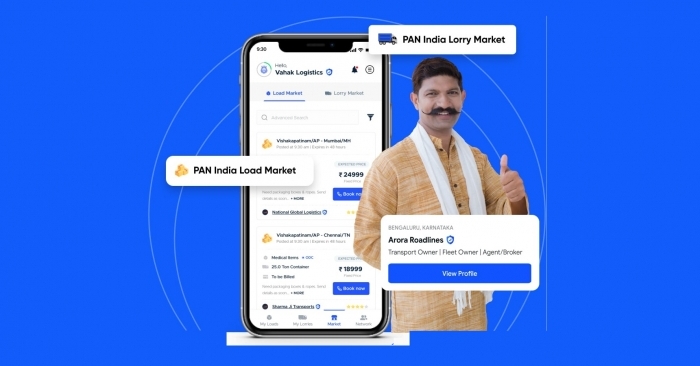Eliminating trust gaps and promoting transparency between transporters

The Indian logistics sector is witnessing an unprecedented transformation. Today, technology is being deployed to address the fundamental challenges faced by transporters across the country. As is well known, robust freight and logistics support is the key to better economic development. However, for the transport sector to be successful and fulfil its potential, trust and transparency in operations are essential values. That’s where the conventional transport business in India has so far underperformed. There is a prevalent trust gap between suppliers, customers, logistics partners, retailers and manufacturers, etc.
With the emergence of online and omni-channel retail, technologies such as AI, Internet of Things (IoT), automation, data analytics and robotics are playing an increasingly important role in addressing the lack of trust and visibility. At the same time, we are seeing suppliers and buyers becoming increasingly wary of frauds, writes Karan Shaha of Vahak.
Manufacturers and suppliers in India typically have their own circle of logistics service providers. It is widely believed that these transporters understand the shipper’s needs and expectations. They know how to handle shipments, what questions to ask, the routes and protocols to take and so on. Over the years, the transporters become well-entrenched with their regional shippers, shipping destinations and end-receivers. Thus, the suppliers tend to believe that their trusted logistics companies would know what’s the best way of delivering things. Similarly, transporters trust the shippers for the legitimacy of the goods, payments and other needs.
When it comes to dealing with ‘outside-the-network’ parties, this trust evaporates. While the reasons behind the trust deficit are understandable, there is no denying that it eats into profitability and resource optimization. Eventually, the supply chain continues to deteriorate when it comes to efficiency, affordability and growth. That’s how things have been until recent times. However, technology is now driving certain parameters and allowing stakeholders to build a trusted relationship with every other organization in the supply chain sector. With such integrated and standardized operations becoming a reality, there is never a worry about getting a shipment delivered safely and on-time or for the transporters to find the next consignment. In a tech-based transportation ecosystem, nobody needs to rely on the responses of a select set of intermediaries who might not be available in times of crisis as witnessed during the pandemic lockdowns.
Here’s how technology is helping the transport sector overcome the need for trust and transparency.
Trust
Trust is generated through verifiable and sustained business practices. We are now witnessing the emergence of transport marketplaces in India which are bringing about the kind of transformation and streamlined approach in the industry that countries like USA, Canada and China have experienced. The shippers as well as the transportation service providers on such platforms are verified and genuine. Hence, business dealings on such platforms eliminate the risk of interactions with illegitimate service providers. Technology enables online interaction between the suppliers and transporters to ensure complete clarity about the terms, rates, and duration etc. The payments are made online and there is no risk of failing to find a transporter or supplier as there are lakhs of truckers and shippers active on such platforms.
Transparency
Trust is a direct outcome of transparency, and that’s where digital logistics services are of utmost importance. The leading platforms come equipped with features such as real-time GPS based tracking of the vehicles/consignments. Without making even a single call, the shippers get complete visibility of their consignment and estimated delivery time. This enables accurate prediction of the estimated delivery time and better streamlining of the supply chains at the supplier as well as the receiver’s end. This kind of visibility and transparency related to goods movement as well as the terms associated with the transport services leads to a highly collaborative and beneficial operation for all stakeholders. Truckers on such platforms manage to keep their vehicles moving for up to 25 days a month compared to a conventional scenario where a vehicle might be on the road for only 15 days a month.
With India rapidly growing as a manufacturing powerhouse and e-commerce/D2C retail sector valued at hundreds of billions of dollars, it is crucial for the transport operations to continuously take steps that reduce the trust gap through complete visibility, collaboration and competitiveness of operations. Technology is the enabler, and the time for adoption is now!
 | Karan Shaha is the chief executive officer and co-founder of Vahak |
The views and opinions expressed in this article are those of the author and do not necessarily reflect the views of Indian Transport & Logistics News



